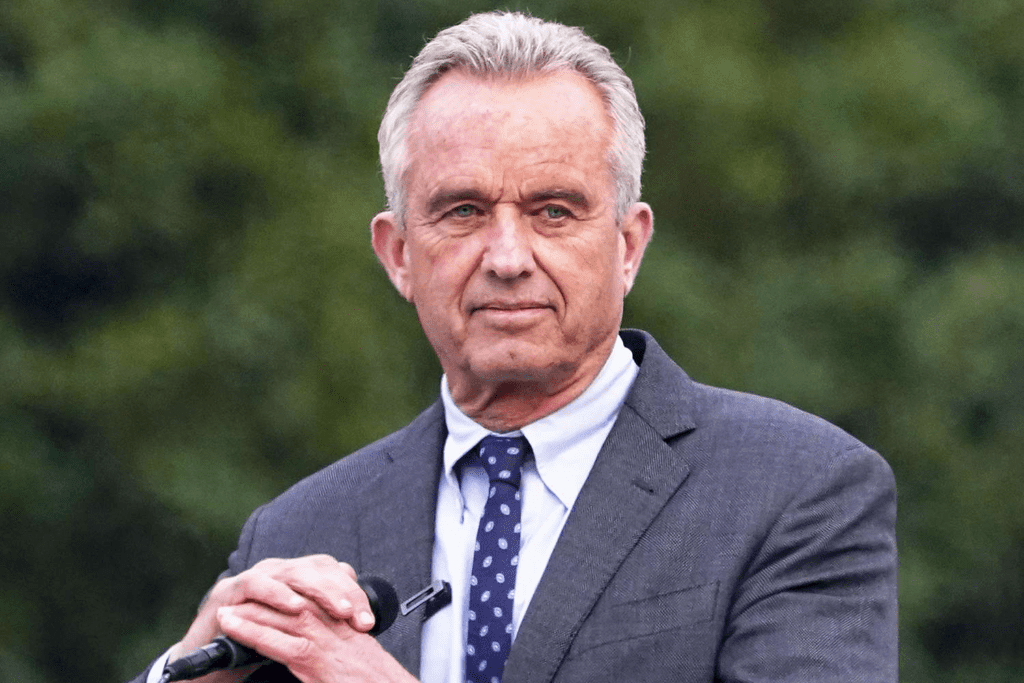Robert F. Kennedy Jr. Reveals Desire To Back Dollar With Bitcoin And Eliminate Crypto Tax
Key Points:
- Presidential candidate Robert F. Kennedy Jr. proposes backing the U.S. dollar with Bitcoin to restore its strength and promote financial stability.
- Kennedy’s plan includes gradually allocating a percentage of T-bills to be backed by hard currency, such as gold, silver, platinum, or Bitcoin.
- He also aims to eliminate capital gains taxes on BTC earnings, encourage innovation and investment, and protect citizen privacy.
Democratic presidential candidate Robert F. Kennedy Jr. has put forth a groundbreaking economic proposal that aims to back the U.S. dollar with Bitcoin (BTC).

During an event organized by the Heal-the-Divide PAC, Kennedy shared his Bitcoin-focused policies that he intends to implement if elected president. His plan includes gradually backing the dollar with Bitcoin and eliminating capital gains taxes on earnings from the cryptocurrency. The goal is to restore the strength of the dollar and promote financial stability in the United States.
Kennedy’s proposal centers around a return to a solid currency foundation in America. He outlined his plan to start with a small allocation, perhaps 1% of issued Treasury bills, backed by hard assets such as gold, silver, platinum, or Bitcoin. Depending on the success of this initial phase, he intends to gradually increase the allocation over time.
“My plan would be to start very, very small, perhaps 1% of issued T-bills would be backed by hard currency, by gold, silver platinum or Bitcoin,” Kennedy said.
By backing the U.S. dollar and debt obligations with hard assets like BTC, Kennedy believed it could rejuvenate the strength of the dollar, control inflation, and usher in a new era of financial stability and prosperity for the country. In addition to the backing of the dollar, Kennedy proposes eliminating capital gains taxes on Bitcoin earnings, aiming to incentivize investment, boost innovation, protect privacy, and encourage businesses to grow within the United States rather than abroad.

Kennedy’s Bitcoin-oriented policies have garnered attention and debate. Supporters argue that backing the dollar with BTC could strengthen the economy, attract investment, and serve as a prudent policy tool to ensure fiscal longevity. They see it as an opportunity to position the United States at the forefront of the cryptocurrency sector. However, critics express concerns about the risks and volatility associated with cryptocurrencies. They caution that backing the dollar with BTC could introduce instability and increase the likelihood of an economic crisis.

In addition to the economic implications, Kennedy’s proposals align with his vision for a free and equitable nation. He aims to safeguard the right to self-custody of BTC, support personal node operation, and advocate for industry-neutral energy regulation. Drawing inspiration from his uncle, President John F. Kennedy, he seeks to govern a country that values hard currency and recognizes the potential pitfalls of fiat currency, such as funding wars without public approval.
As the presidential campaign unfolds, Kennedy’s Bitcoin-oriented policies reflect the evolving landscape of digital currencies and their potential impact on economic systems. The proposal not only explores the backing of the dollar with BTC but also touches on broader issues of financial stability, innovation, and privacy.
DISCLAIMER: The information on this website is provided as general market commentary and does not constitute investment advice. We encourage you to do your own research before investing.






















